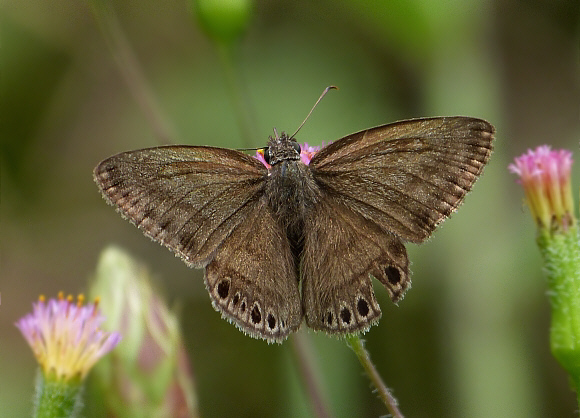
Introduction
The Pyrginae, popularly known as Flats or Spreadwings, are a cosmopolitan subfamily distributed across temperate and tropical habitats throughout the world. In the Americas there are 990 species, of which about 580 are assigned to the tribe Pyrgini.
The genus Timochreon comprises of only 2 species – doria from Brazil, and satyrus. Both are very similar, and bear a strong superficial resemblance to Euptychine ringlets (Satyrinae) although the hooked antennae and large eyes quickly distinguish them as skippers.
Timochreon satyrus is distributed from Costa Rica to the upper Amazonian regions of Ecuador, Peru, Venezuela and Brazil.
Habitats
This species is found in disturbed forest-edge habitats at elevations between about 300-1600m.
Lifecycle
The larva is yellowish-green with a dark green dorsal line and pale sub-dorsal lines. It feeds on Waltherea and probably on other genera of Malvaceae. The pupa is green, with numerous bristles projecting from the thorax and abdomen. It is formed within a flimsy cocoon constructed by folding a leaf and fastening it with a few strands of silk.
Adult behaviour
Males imbibe mineralised moisture from damp ground. Both sexes nectar at Compositae and other herbaceous flowers.
